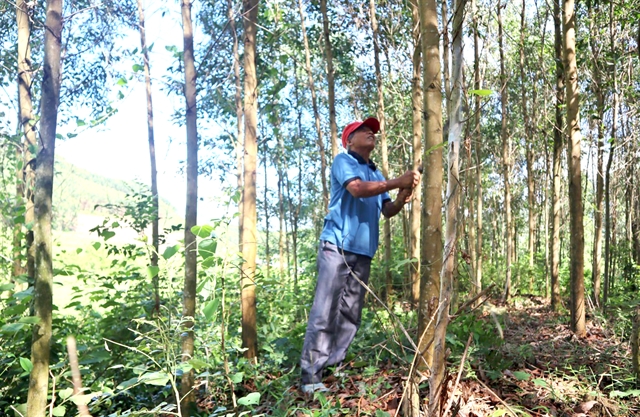 Environment
Environment

 |
| A Forest Stewardship Council (FSC)-certified forest in the central province of Quảng Bình. — VNA/VNS Photo |
HÀ NỘI — Việt Nam has received a US$51.5 million payment for verified emissions reductions - commonly referred to as carbon credits - for reducing deforestation and forest degradation (REDD+) and for enhancing carbon stored in forests through reforestation and afforestation, according to a World Bank's press release on Thursday.
The payment made to Việt Nam, making it the first country in the East Asia Pacific region to receive a results-based payment from the World Bank’s Forest Carbon Partnership Facility (FCPF), was for reducing 10.3 million tons of carbon emissions in the period spanning February 1, 2018 and December 31, 2019.
This makes for the biggest single payment to date made by the FCPF for verified and high integrity carbon credits. The benefits of this payment are expected to reach 70,055 forest owners and 1,356 neighbouring communities, allocated according to a robust benefit-sharing plan developed through a consultative, participatory, and transparent process.
“The success of this REDD+ programme brings Việt Nam closer to delivering on our ambitious Nationally Determined Contributions under the Paris Agreement, while protecting areas of vital importance to biodiversity conservation,” Vietnamese Minister of Agriculture and Rural Development Lê Minh Hoan said.
The country is already generating emission reductions in excess of the volume contracted with the FCPF, and can sell the credits to third party buyers through bilateral agreements or carbon markets.
Việt Nam can also use the excess credits to fulfil its Nationally Determined Contributions or retire them, which is a net climate benefit.
“This landmark payment marks another step for Việt Nam towards joining the global carbon credit market and opens a new opportunity to finance the country’s ambitious climate commitments and targets,” World Bank Country Director for Việt Nam Carolyn Turk said.
The emission reduction programme implemented between 2018 and 2019 has yielded remarkable results, with a total of 16.2 million verified emission reductions achieved, surpassing the initial target of 10.3 million outlined in the Emission Reduction Payment Agreement by 5.9 million. In response to this success, the World Bank has issued a call option notice to acquire an additional 1 million emission reductions beyond the agreed contract volume.
Việt Nam’s emission reduction programme protects most of the country’s tropical forests, covering 3.1 million of the 5.1 million hectares of land in the programme area.
These forests hold immense ecological significance, forming the backbone of five internationally recognised conservation corridors.
The area is also home to 12 per cent of Việt Nam’s population, including 13 ethnic minority groups and many forest-dependent communities.
Almost one-third of people in the region live below the national poverty line.
Through a multifaceted approach involving enhanced forest management practices, strategic investments in the forestry sector, and the refinement of agricultural policies, the programme is actively expanding both the coverage and quality of forested areas in collaboration with local communities.
The Forest Carbon Partnership Facility (FCPF) is a global partnership of governments, businesses, civil society, and Indigenous Peoples' organisations focused on reducing emissions from deforestation and forest degradation, forest carbon stock conservation, the sustainable management of forests, and the enhancement of forest carbon stocks in developing countries, activities commonly referred to as REDD+.
Launched in 2008, the FCPF has worked with 47 developing countries across Africa, Asia, and Latin America and the Caribbean, along with 17 donors that have made contributions and commitments totalling $1.3 billion. — VNS




